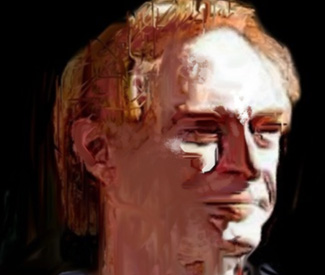OPINION
San Francisco is at a crossroads. While some residents benefit from prosperity, an affordable housing crisis coupled with income inequality make this a time of struggle for other San Franciscans.
Our inclusive, diverse culture that has historically made San Francisco a haven for artists, immigrants, and innovators is at stake. Given this, effective progressive leadership is critical to ensuring that our city remains a place where all San Franciscans can afford to live and prosper. That’s why I urge you to vote for my friend, President of the Board of Supervisors David Chiu, to represent San Francisco in the California State Assembly.
As president, David has demonstrated an inclusive, unifying leadership style that has had a transformative impact at City Hall. He really listens to everyone, and brings people together to address our city’s most critical challenges. He combines rock solid progressive values with a fervent drive to do more than talk — to actually get the big stuff done.
The proof is in the pudding: he’s passed more pieces of legislation than any other current supervisor in every major policy arena, and his colleagues have elected him president three times.
David has delivered consistently on our city’s most critical issue: affordable housing. A tenant in San Francisco himself for the past 18 years, David has fought to protect and expand affordable housing across the city, leading efforts to build more housing for homeless veterans, transitional age youth, and seniors.
He supported rebuilding dilapidated public housing projects that have been in total disrepair. He has supported the strengthening of habitability standards in housing across the board. He led the charge to create a 10-year moratorium on condo conversions and to prioritize victims of Ellis Act evictions for our city’s affordable housing opportunities.
After multiple failed attempts by supervisors over two decades, he passed legislation to finally legalize in-law units, preserving one of our city’s largest existing stocks of affordable housing. David will continue to work to stem San Francisco’s affordable housing crisis in the Assembly, including pushing hard to reform the Ellis Act.
David has been a leader on a host of other important issues. An avid biker who doesn’t own a car, David has spearheaded groundbreaking environmental legislation, banning the sale of plastic water bottles on city property, expanding urban agriculture, and prohibiting the delivery of unwanted Yellow Pages. He’s increased funding for community arts, an issue close to my heart as an artist. He has championed language access for our city’s immigrants, and fought for the reunification of LGBT immigrant families.
Under his leadership, San Francisco is the first city in the country to establish the right to civil counsel for low-income residents being denied basic human rights such as housing, as well as to give workers the right to request flexible and predictable working arrangements to take care of their families. He passed progressive business tax reform that will bring $300 million of new revenues over the next decade.
When it comes down to it, we have two Assembly candidates, David Chiu and David Campos, who share the strongly held progressive values of the Guardian’s readers. I am a longtime supporter of the Guardian and have valued its endorsement in my previous races. The difference lies in style and effectiveness.
I know how urgently San Francisco needs a leader in the Assembly who can bring people together to get significant things done. The challenges and opportunities our city faces demand it. I know David Chiu can do this because he has done it, over and over again, in five and a half remarkably effective years of progressive leadership on the Board of Supervisors.
Please join me in supporting David Chiu for State Assembly.
Debra Walker is an artist who serves on the Building Inspection Commission, recently reappointed to that seat by David Chiu.

